1969 is etched in LGBTQ+ history as a landmark year because of Stonewall, but there’s another year that’s just as significant or maybe more so — 1973.
That was the year the American Psychiatric Association declared that homosexuality is not a mental illness. It was also the year that saw the founding of three major LGBTQ+ organizations, all still active: Lambda Legal, the National Gay (now LGBTQ) Task Force, and PFLAG, all observing their 50th anniversary this year.
They all had roots in the activism that rose up in the first few years after Stonewall. LGBTQ+ Americans — generally referred to then simply as gays or gays and lesbians — were fed up and ready to fight back. Forty-five states still had sodomy laws on the books. Police entrapment and brutality were common. And protection from discrimination — well, it didn’t exist.
The event that led to the founding of PFLAG was a protest calling for a gay rights ordinance in New York City. Morty Manford and other members of the Gay Activists Alliance did a “zap,” or direct action, seizing the stage at the April 1972 Inner Circle dinner, a gala event for journalists and politicians. The protesters, Manford in particular, drew the ire of Michael Maye, president of New York’s firefighters union. Manford ended up in the hospital after a severe beating by Maye.
Someone from the hospital asked Manford’s mother, Jeanne Manford, if she knew her son was gay. She replied that she did. She went into action, writing letters to New York newspapers expressing her outrage at her son’s assault and defending gay people’s right to live free of discrimination and brutality. She then marched with him in the Christopher Street Liberation Day March in June, with a sign saying, “Parents of Gays: Unite in Support for Our Children.”
Morty Manford remarked that his community needed an ally organization, and Jeanne and her husband, Jules, held the first meeting of what would become PFLAG in a Greenwich Village church March 11, 1973. Similar groups were founded around the U.S. throughout the 1970s, and the Federation of Parents and Friends of Lesbians and Gays was incorporated as a national organization in 1982. The first national president was Adele Starr, who had founded PFLAG’s Los Angeles chapter.

“PFLAG is the ally cornerstone of the movement,” says Brian Bond, the organization’s executive director, noting that the group today “stands of the shoulders” of its founders.
Lambda Legal, which started as Lambda Legal Defense and Education Fund, has brought and won many landmark cases in the past 50 years on issues including employment discrimination, safe schools, marriage equality, transgender health care, HIV and AIDS, and many more. But its first legal case was to establish its right to exist.
Bill Thom had gathered a group of fellow lawyers to form a nonprofit to work on gay rights. But when Lambda Legal filed its articles of incorporation with New York State, the state said there was no need for such an organization and that it was “neither benevolent nor charitable,” says Kevin Jennings, the group’s current CEO. “The government didn’t even want to allow us to incorporate,” he notes. So Lambda Legal sued the state for the right to incorporate, and after a protracted court battle, it was officially authorized to practice law on October 18, 1973. Thom ran the group out of his apartment, with a Band-Aid on his mailbox inscribed with Lambda Legal.
But even without a fancy office, “within the first couple years of its founding, Lambda Legal was already winning landmark cases,” Jennings says. It represented military personnel who’d been kicked out for being gay, student groups that had been denied recognition, and parents threatened with losing their children, advancing rights with each case. Later there was the case of Wisconsin gay teen Jamie Nabozny, who’d been severely bullied in school; his suit was the first to win protections for students. Then there was AIDS discrimination to be fought, marriage equality to be won, and more.
“We, way ahead of the curve, won marriage equality in Iowa,” Jennings says. The decision came down from the Iowa Supreme Court in 2009, making it the third state with marriage equality, after Massachusetts and Connecticut. “Basically, any advance has happened through litigation, not legislation,” he says.
But legislation is important too, and so is lobbying government and the private sector, along with organizing the grassroots, as the National LGBTQ Task Force knows. Activists including Howard Brown, Martin Duberman, Barbara Gittings, Ron Gold, Frank Kameny, Nathalie Rockhill, and Bruce Voeller founded the group as the National Gay Task Force in October 1973. Voeller was its first executive director.
Task Force activist Jean O’Leary, later its co-executive director, and psychologist Charles Silverstein made the presentation to the American Psychiatric Association that led the APA to remove homosexuality from its list of mental disorders in December 1973. “It was a very well-organized presentation. We knew what everybody was going to do,” Silverstein told The Advocate’s LGBTQ&A podcast in 2021, in one of his last interviews. (He died in 2023.)

O’Leary went on to organize the first gay and lesbian contingent to meet with White House officials — a session with Midge Costanza, a top aide to President Jimmy Carter, in 1977. The Task Force has also fought for the rights of LGBTQ+ federal employees, military members, people living with AIDS, and more. It has also pioneered intersectionality in the movement and helps hone activists’ skills through its annual Creating Change conference.
From the start it emphasized being out and proud, recalls David Rothenberg, who served on the Task Force’s first board of directors. “I was the classic deeply closeted person,” Rothenberg recalls. But when he was recruited for the board, he was told he had to be out. So he came out on national television, on The David Susskind Show. “The other is less threatening when they’re seen,” he notes.
Rothenberg was then executive director of the Fortune Society, a nonprofit that helps formerly incarcerated people reenter society. He was prepared to resign when he came out, but the Fortune Society’s board wouldn’t accept his resignation. He stayed another 15 years.
The Task Force’s profile grew. Jeff Levi, who was director of government affairs from 1983 to 1986 and executive director from 1986 to 1989, recalls testifying before the Senate Judiciary Committee in 1986, when it was considering the elevation of conservative Supreme Court Justice William Rehnquist to chief justice. The Task Force was opposed.
Levi’s appearance was marked by an unforgettable exchange with Strom Thurmond, the racist, homophobic senator who chaired the Judiciary Committee. Thurmond asked, “Does your organization advocate any kind of treatment for gays and lesbians to see if they can change them and make them normal like other people?” Levi replied, “Well, Senator, we consider ourselves to be quite normal, thank you.”
Years later, all these organizations still have to persuade some Americans that LGBTQ+ people — especially transgender people, given that the far right has whipped up so much transphobia — are “quite normal.” As PFLAG, Lambda Legal, and the Task Force see it, their job is far from done.
“I thought we would be past some of the challenges we face today,” Bond admits. He notes, “The arc is bending, and it’s bending in the right way, but nothing comes easy. … We will ultimately win this fight, this struggle, but it will take us all collectively to do so.”
Jennings adds, “Advances can be rolled back, so we’re planning for our next 50 years.”
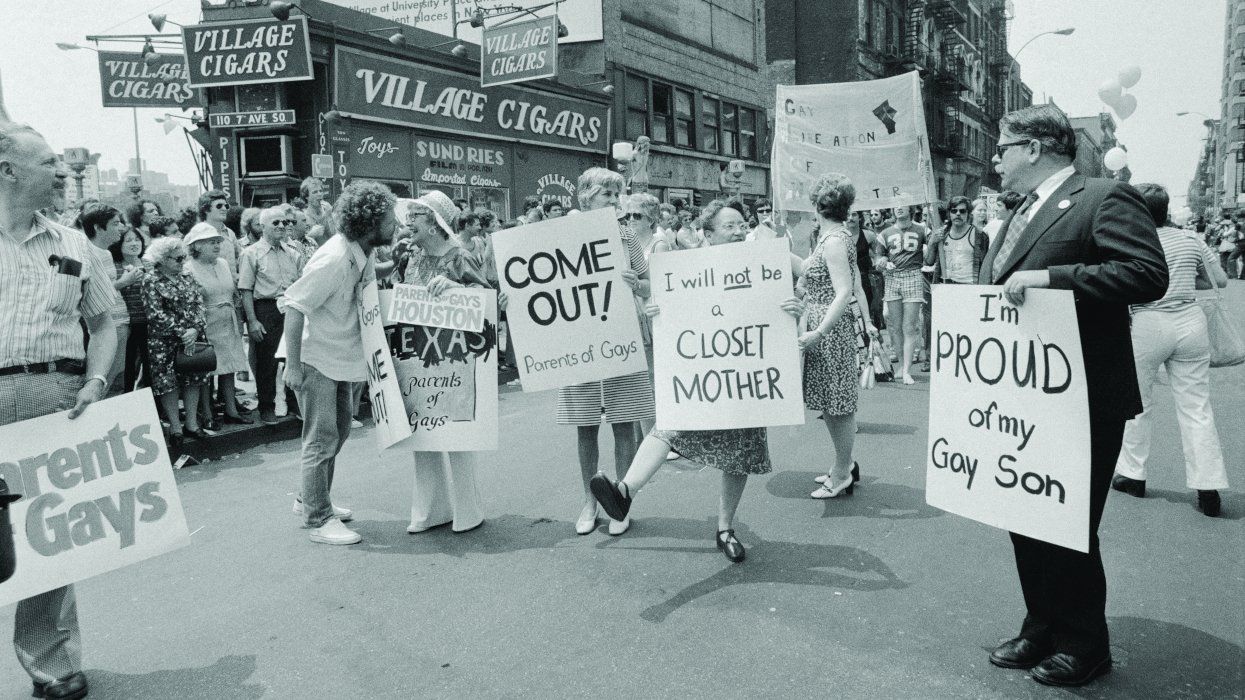




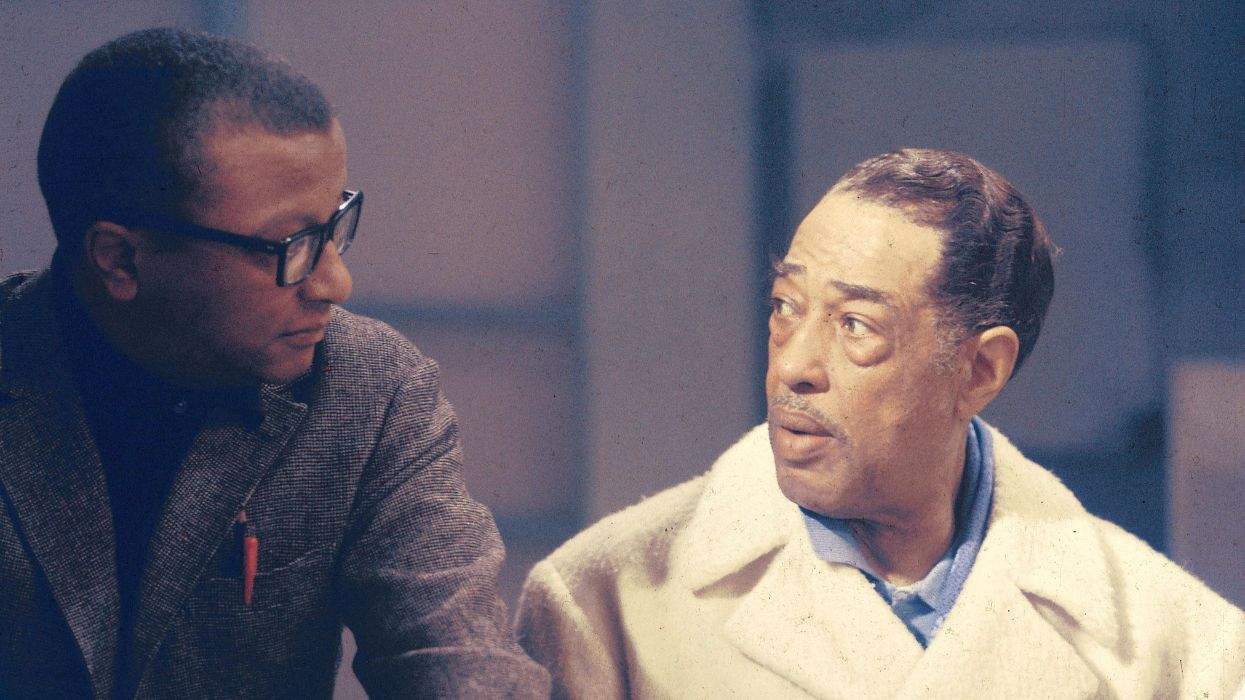
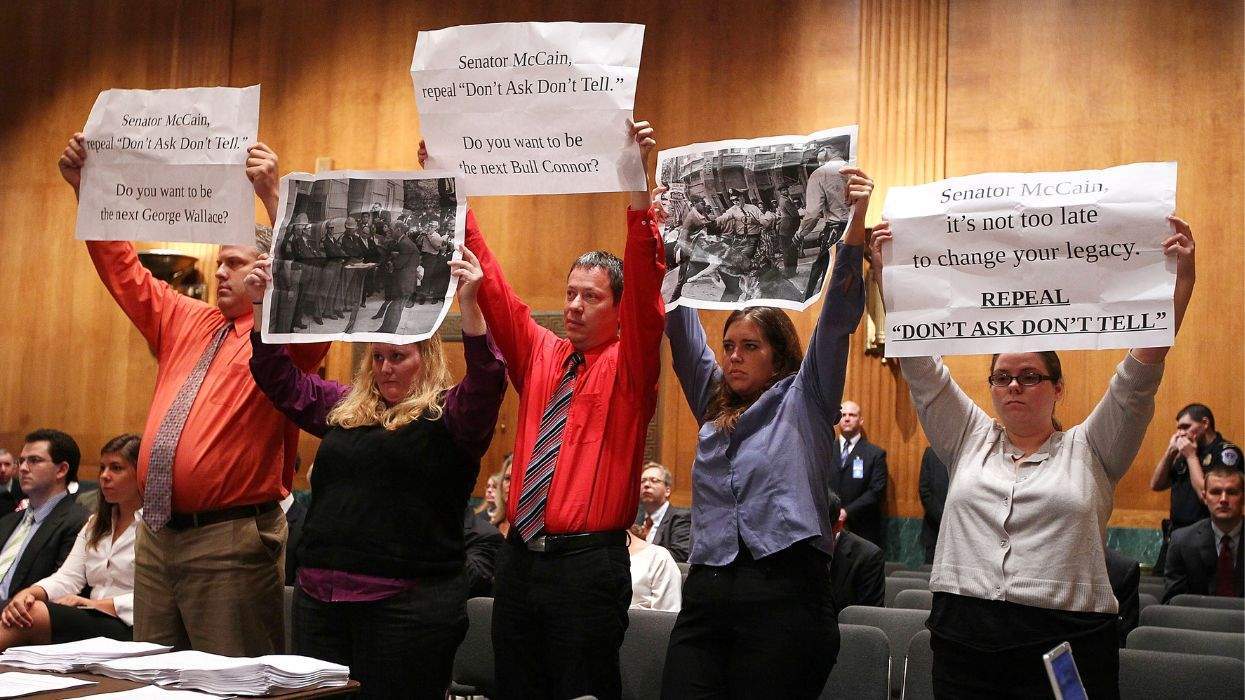
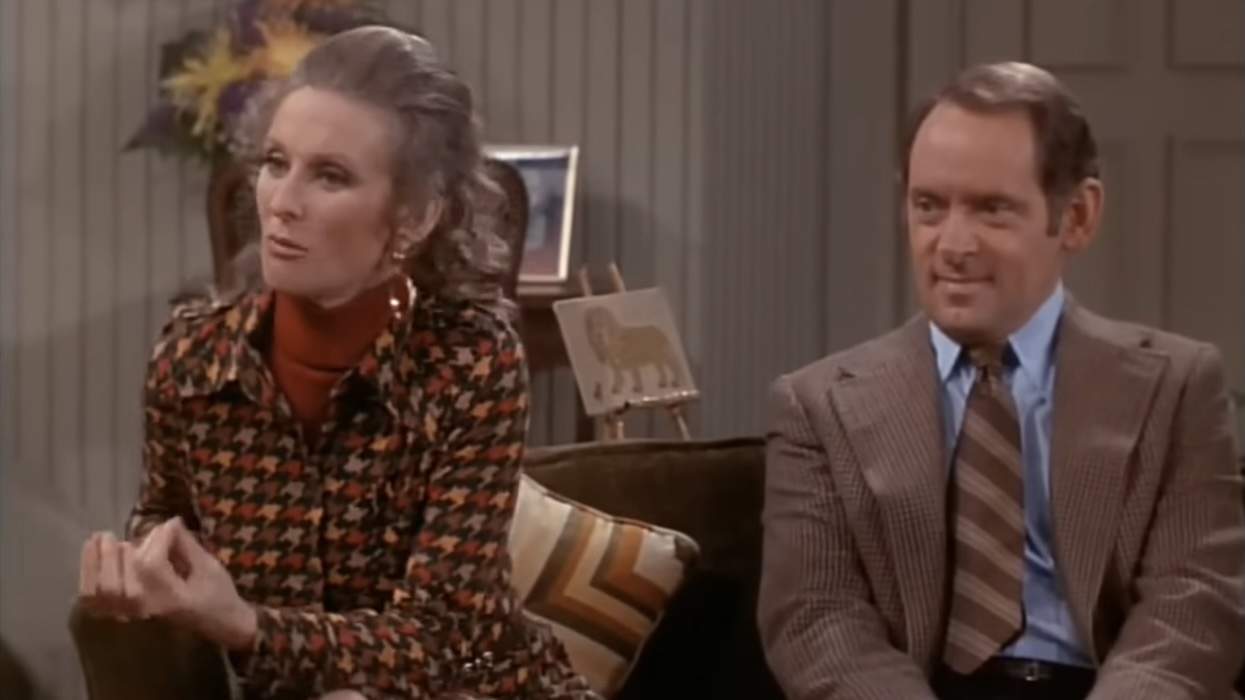
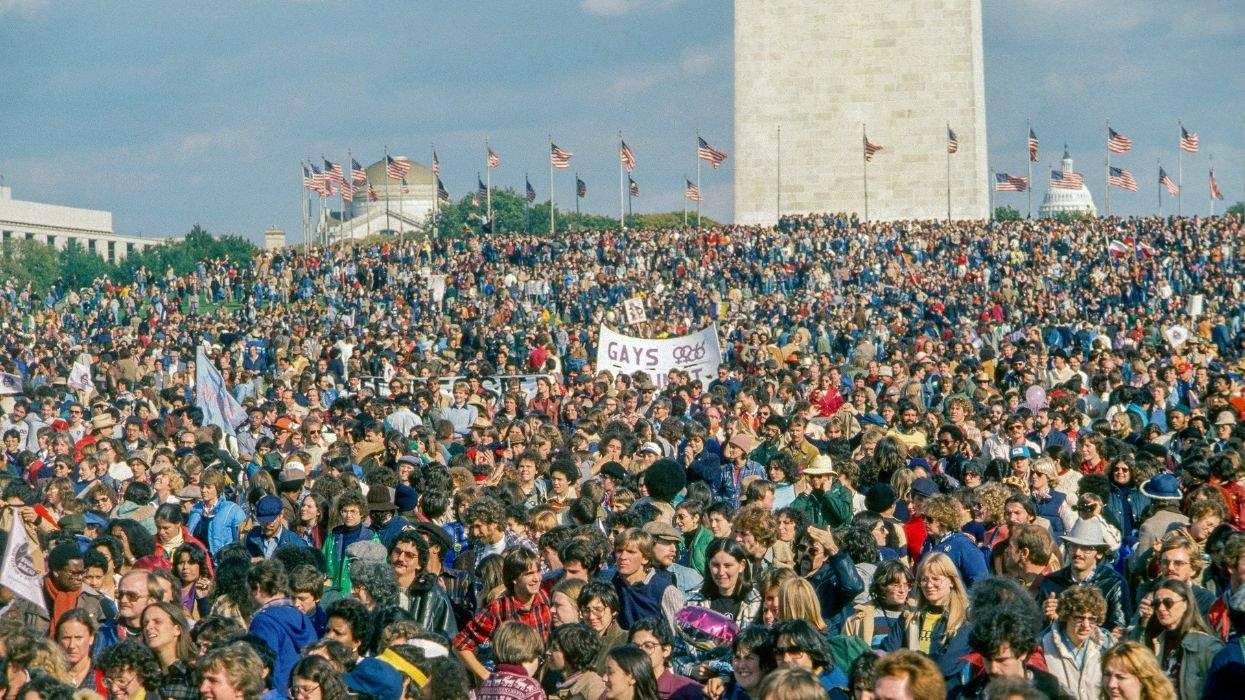






Charlie Kirk DID say stoning gay people was the 'perfect law' — and these other heinous quotes
These are some of his worst comments about LGBTQ+ people made by Charlie Kirk.